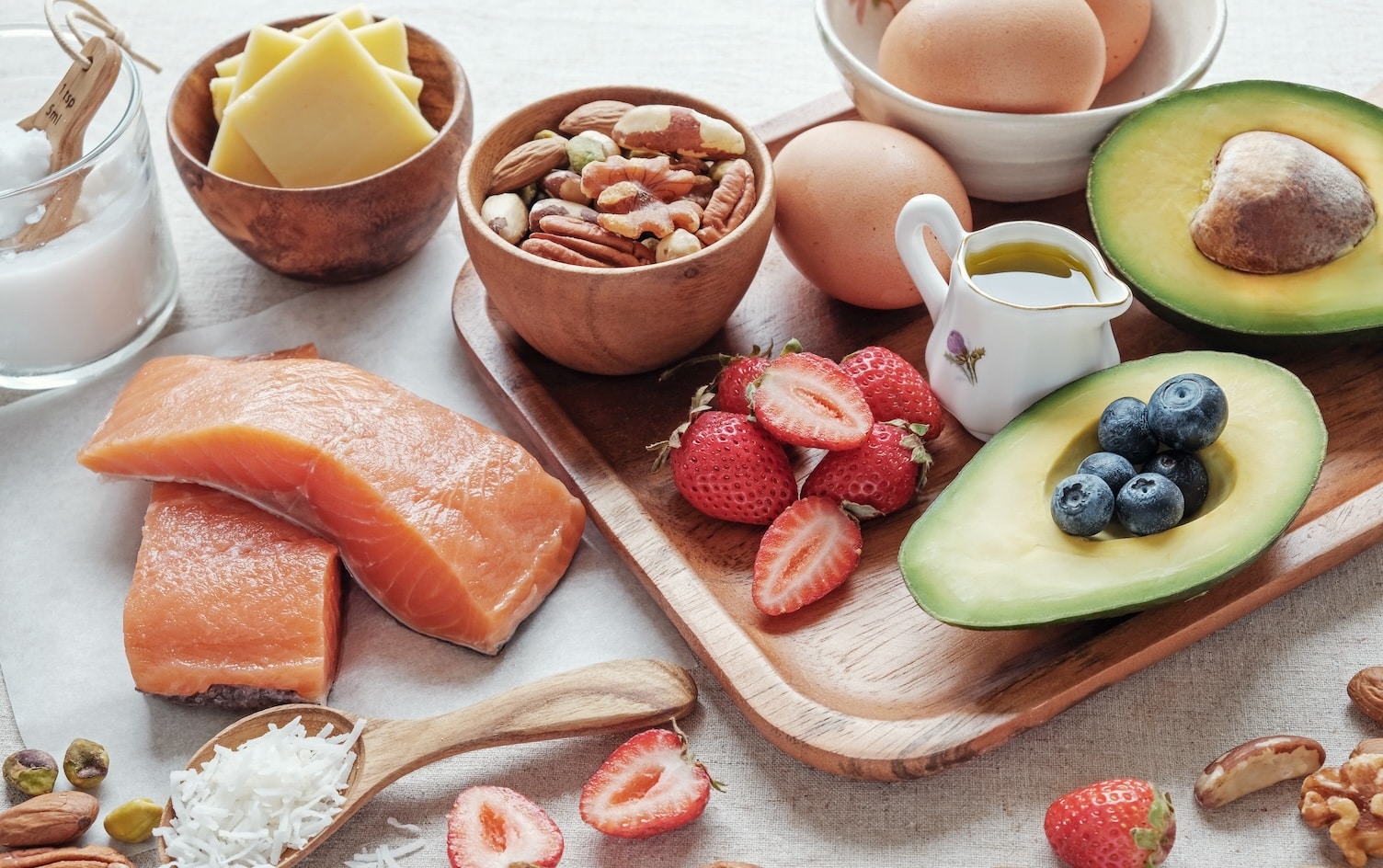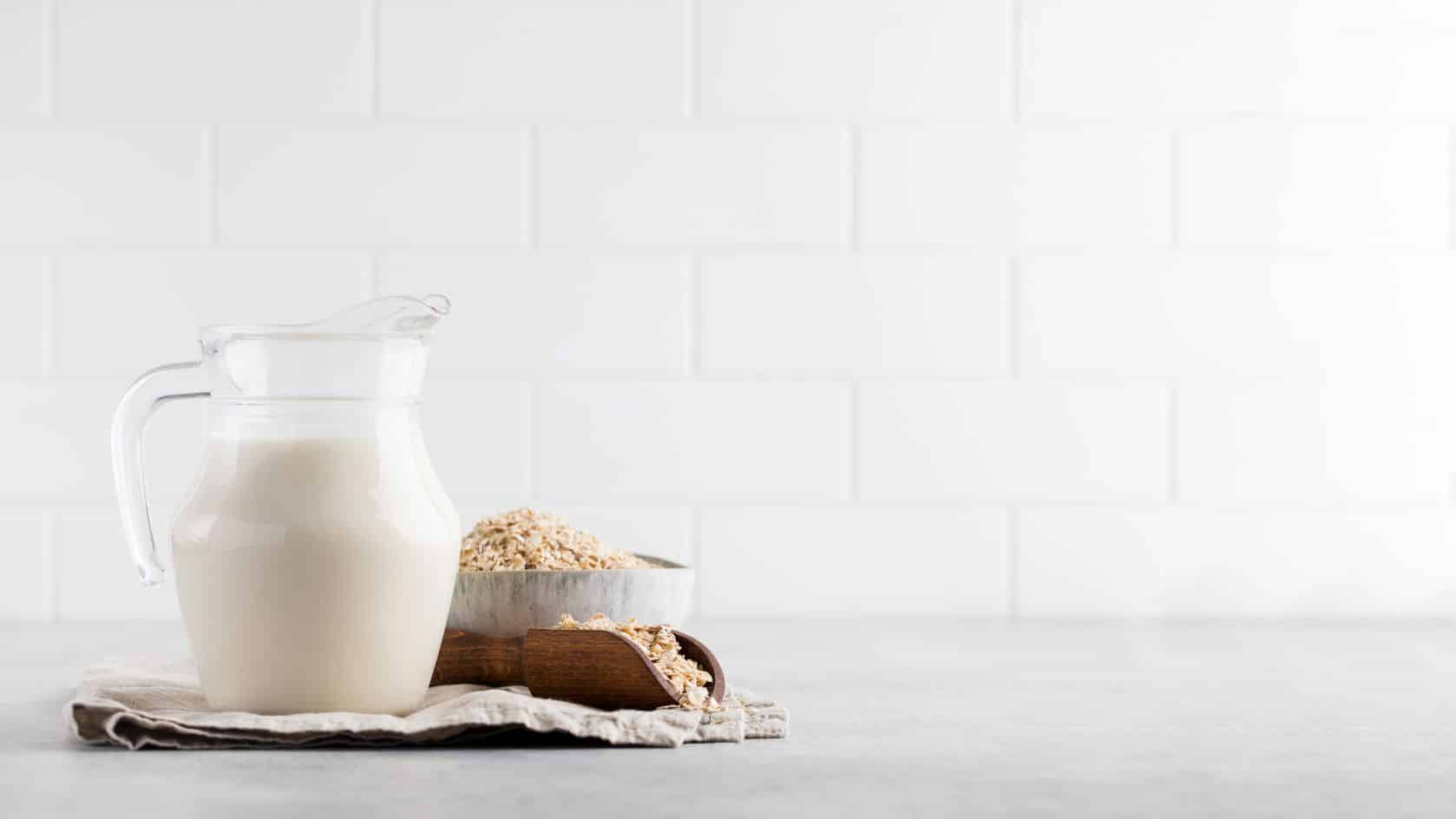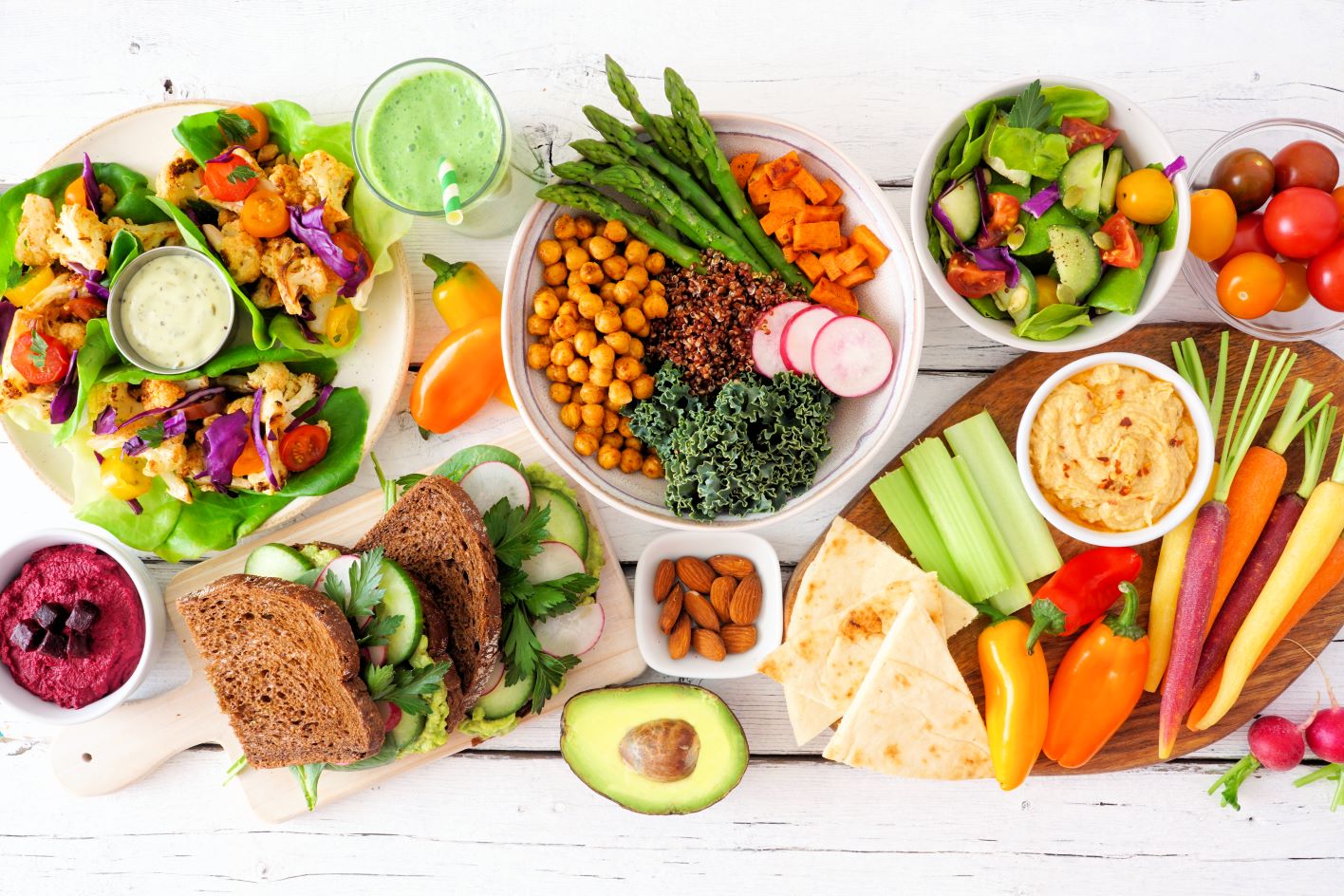If you follow fitness influencers on social media, chances are you’ve heard them all sing the praises of protein no matter what kind of nutrition plan they follow.
Even if you aren’t plugged into Instagram and TikTok, you’ve likely heard that protein is one of the key nutrients you need for good overall health.
Eating high-energy foods that are rich in protein throughout the day can help increase and preserve muscle mass, keep you feeling fuller for longer, and stabilize your blood sugar levels throughout the day.
With so many benefits, it’s no wonder fitness gurus are showing so much love for protein.
If you’re looking to sneak a little more protein content into your meals throughout the day, here are nine high-protein foods for energy, as recommended by registered dietitian and MyFitnessPal scientific advisor Erin Palinski-Wade.
How Does Protein Impact Your Energy Levels?
Protein is one of the macronutrients that your body needs to keep your body working at its best.
“Having quality protein spaced out throughout the day at each meal and snack is a great way to optimize energy levels,” says Palinski-Wade.
Studies show that eating a high-protein diet helps to maintain a balanced level of energy in your body. It can also help with weight loss, muscle function, and muscle growth.
“Protein helps to slow down the digestion of carbohydrates, providing a more steady energy balance throughout the day. Protein also helps to curb hunger and cravings, helping to prevent cravings for simple sugars that can lead to energy crashes during the day,” Palinski-Wade confirms.
Food and energy go hand-in-hand. Carbs, especially complex carbohydrates, play an important role in energy production.
Mixing complex carbs with good sources of protein and fat can keep your energy up for longer, powering you through your day.
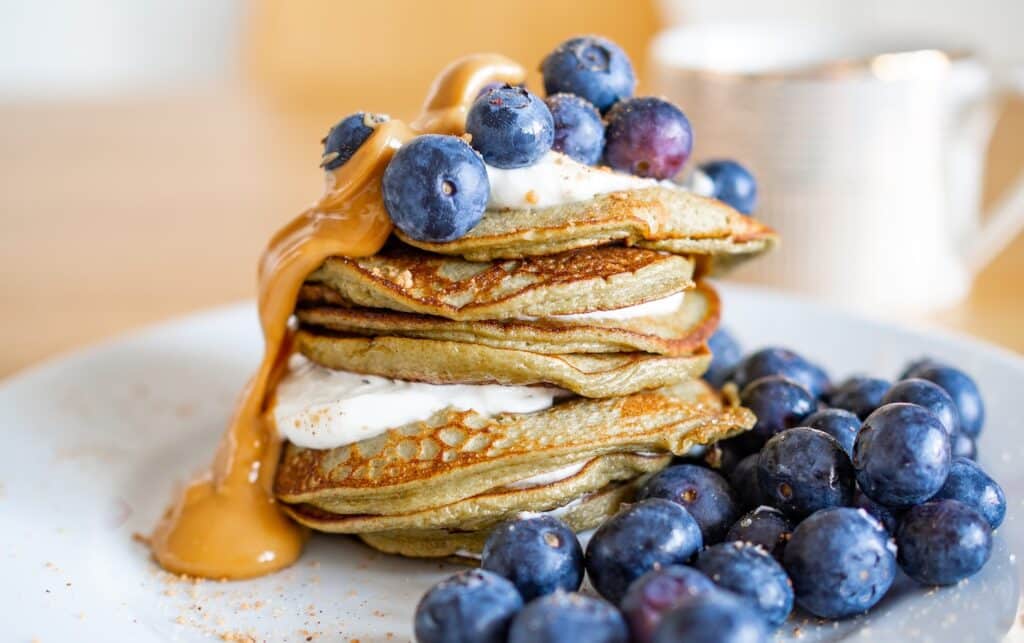
You might also like
6 High-Protein Breakfast Ideas To Keep You Energized Throughout The Day >
Top 9 High-Protein Foods for Energy According to a Dietitian
High-quality protein is a powerhouse when it comes to your health. So, what are some good sources of protein in food?
Here are nine excellent foods for energy that anyone can try, including options for vegans and vegetarians.
1. Eggs: Obtain Essential Amino Acids
Eggs are a complete protein that have an impressive nutrient profile.
In addition to containing all of the essential amino acids our bodies need, one large egg has just 71 calories and 6.3 grams of protein.
“Starting your day off with quality protein within an hour of waking can help to steady energy and appetite for the day ahead,” says Palinski-Wade.
Having eggs for breakfast is an easy way to get in some protein. There are so many tasty ways to prepare them and they only take minutes to make.
Here are some recipes to try:
- Baked Eggs with Wilted Baby Spinach
- Smoked Salmon & Brussels Sprout Scrambled Eggs
- Roasted Sweet Potatoes with Poached Eggs & Bell Pepper Salsa
- One-Pan Mediterranean Eggs
- Classic Eggs Benedict with Hollandaise
2. Beans and Legumes: Benefit From Plant-Based Proteins
Beans and legumes, such as chickpeas, lentils, and edamame, are a rich source of plant-based protein.
These high-fiber and high-protein foods are complex carbs, meaning they take longer to digest and won’t spike your blood sugar.
Healthy adults need 25 to 30 grams of fiber a day, but most only eat about half of that.
Fun fact: Tracking nutrients like fiber and protein in the MyFitnessPal app helps nearly 1 million members reach their nutrition and fitness goals every year.
3. Fatty Fish: Obtain Omega-3 Fatty Acids
Oily fish, like salmon, tuna, and sardines, are great sources of protein and omega-3 fatty acids.
These healthy fats are essential for well-being! They can help improve your heart health and may lower inflammation—both of which can support optimal energy levels.
Your body can’t make omega-3s, so it’s important to eat foods that contain them.
4. Almonds: Enjoy Sustained Energy Throughout the Day
Looking for a natural energy booster? Try almonds!
“Almonds are a good source of protein, healthy fats, and fiber, which can help provide sustained energy throughout the day,” says Palinski-Wade.
Studies show that snacking on almonds can also help you maintain a healthy weight. Since they are so nutrient-dense, they can satisfy you for longer while lowering blood glucose.
They’re also a good source of magnesium, which helps ward off fatigue.
5. Greek Yogurt: More Energy Plus Probiotics
Greek yogurt has double the protein of regular yogurt, as well as less sugar and sodium. It’s a good source of gut-healthy probiotics and often easier for people to digest. Since it’s packed with protein and complex carbs, you digest yogurt slowly, which helps you sustain energy.
You can add it to a number of different dishes! Try some of the following recipes:
- Chipotle Black Bean Nachos With Greek Yogurt
- Avocado Greek Yogurt Chicken Salad
- Banana Oat Greek Yogurt Pancakes
- Dark Chocolate Yogurt Pudding
6. Quinoa: Eat a Complete Protein With Complex Carbs
Quinoa is a type of seed that can be a great substitute for carbs like rice or pasta or as a side to a number of different dishes. It’s a plant-based complete protein that has all of the essential amino acids that you need.
Since quinoa is a complex carb, it has a slow release of energy compared to simple carbs, as complex carbs take longer for your body to digest.
Even better, quinoa contains 8 grams of protein and 5 grams of fiber and is gluten-free.
7. Oats: Benefit From Slow-Releasing Energy
Oats are excellent energetic foods that you can enjoy any time of day. Another complex carb, your body digests oats slowly and then releases energy slowly.
Oats are whole grains, have 26 grams of protein per dry cup, and are loaded with fiber.
Some people are hesitant to try oats because they remember the lumpy hot cereal from their childhood. To help you out, MyFitnessPal has a treasure trove of healthy and tasty oats recipes.
8. Chia Seeds: Balance Your Blood Sugar
Palinski-Wade says that “with a balance of protein, fiber, and fat, chia seeds can provide balanced blood sugar resulting in steady energy levels.”
Just 2.5 tablespoons of chia seeds contain 5 grams of protein, 10 grams of fiber, and 8 grams of heart-healthy fats.
Chia seeds are a vegan source of protein that you can add to just about anything, like salads, oats, and smoothies. Chia pudding is also a great option for a protein-packed breakfast or snack.
Recipe you might like: https://blog.myfitnesspal.com/pbj-coconut-chia-pudding/
9. Spelt: Enjoy Long-Lasting Energy All-Day
Spelt is an ancient grain, which is a whole grain that hasn’t changed much over the centuries.
Whole grains are great foods to increase energy because they take a long time to digest. Spelt, specifically, has a whopping 25 grams of protein per dry cup, as well as a nice mix of complex carbs and fiber.
This grain works great topped on salads, mixed into stews, or even as part of a stir fry. Don’t be afraid to get creative in the kitchen!
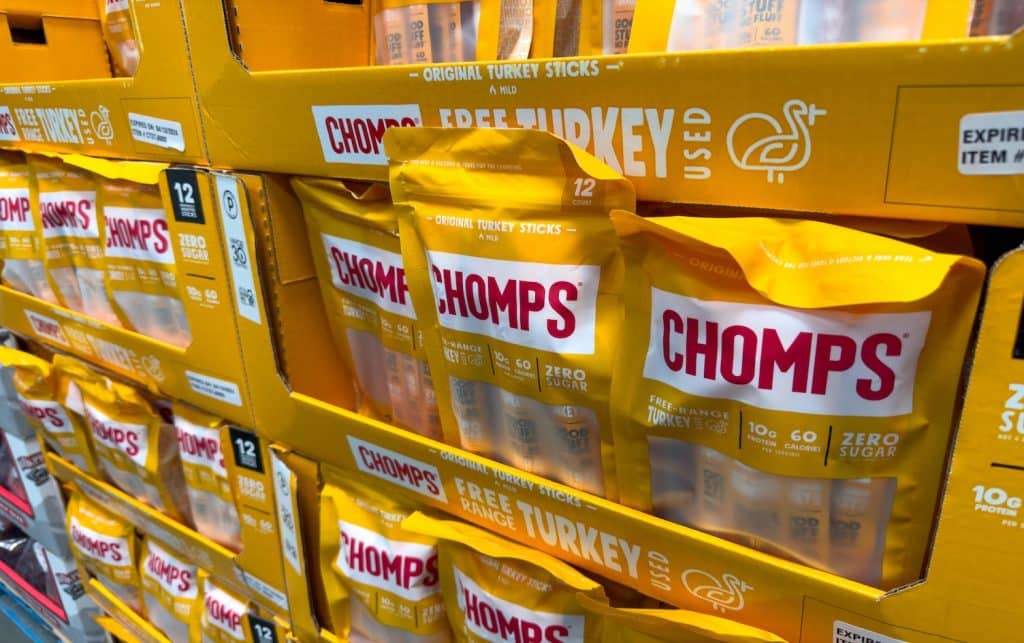
You might also like
11 Best High-Protein Foods at Costco >
The Bottom Line
Adding high-quality proteins to each meal can help you meet your daily goals.
“For consistent, long-term energy, focus on quality protein at each meal and snack versus having the majority of your protein at just one meal,” says Palinski-Wade.
To help you keep an eye on how much protein you’re getting with each meal, track your intake on MyFitnessPal. This way, you can see in real time how much closer you are to meeting your daily target with each meal and snack.

